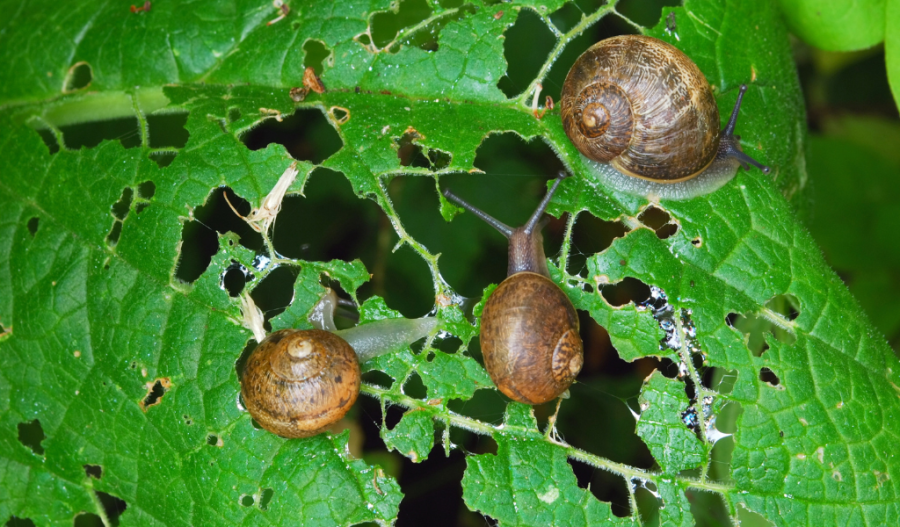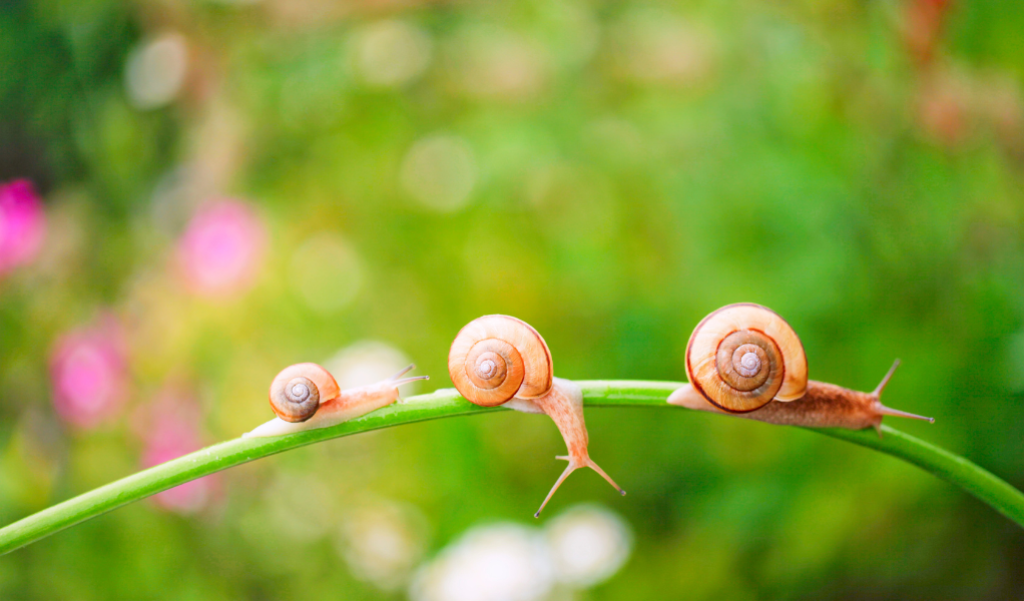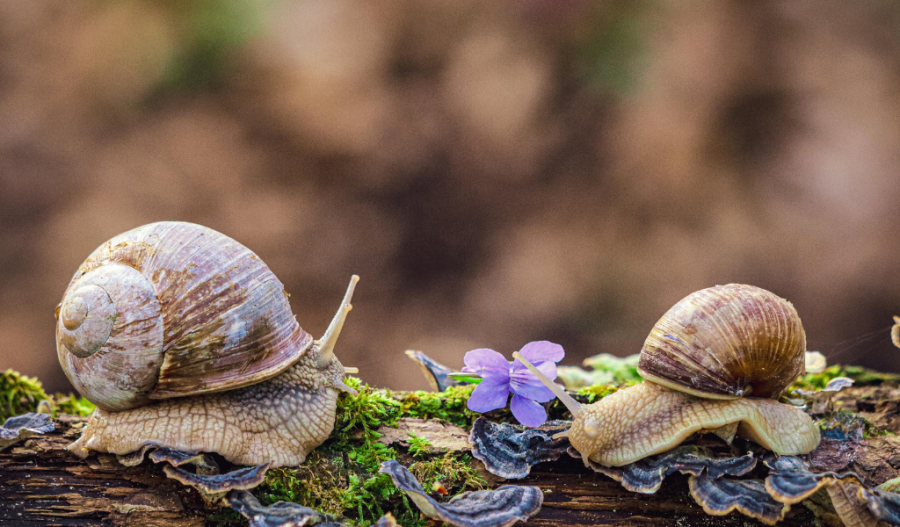
But let’s be real, snails may be beneficial in some ways, but they also destroy things that require a lot of energy and time. So, despite their potential benefits, snails can pose a threat to your garden in the following ways:
1. Feeding on Plants: Snails are notorious for consuming various garden plants, particularly those with tender foliage. This can result in significant damage to ornamental and edible greens. As you learned above, snails love leafy greens, so many plants are at risk.
2. Reproduction Rate: Snails have the capacity for rapid reproduction, with some species laying hundreds of eggs at a time. This can lead to substantial population growth, exacerbating their impact on the garden.
3. Transmission of Diseases: Snails can be carriers of certain plant diseases, introducing potential threats to the health of your garden. This is critical especially if you have children or pets, as they can unintentionally touch and grab snails without thinking of the harm that can come from them.
Ways to Prevent Damage
There isn’t a cure for snails. If you are surrounded by nature, you are surrounded by snails, so it’s important to consider the environment when thinking about how to control the snail population within your area. If you decide you’d like to mitigate the adverse effects of snails on your garden, there are several strategies you can try:
•Physical Barriers: Implementing physical barriers, such as copper tape or diatomaceous earth, can deter snails from accessing vulnerable plants. The diatomaceous earth powder targets snails and slugs by getting into their joints and under their shells, causing them to dehydrate and die. Sprinkling diatomaceous earth around your garden forms a protective barrier, deterring these pests without damaging your plants.
•Natural Predators: Introducing natural predators of snails, such as certain bird species and predatory insects, can help regulate their population. By increasing predation pressure, the number of snails decreases and prevents them from overgrazing plants and causing damage.
•Cultural Practices: Implement gardening practices, like regularly removing debris and maintaining dry conditions, that discourage snail colonization. Keeping an area free of plant debris, rocks, low growing weeds, logs, and boards will reduce the number of available hiding places that support their colonization. Spacing plants far enough apart to allow air movement to dry the soil is also useful.
In conclusion, the presence of snails in your garden can be a double-edged sword. While they have the potential to contribute positively to the ecosystem, they can also pose risks to your plants. Striking a balance through thoughtful management practices can help maintain a harmonious coexistence with these garden-dwelling creatures.


